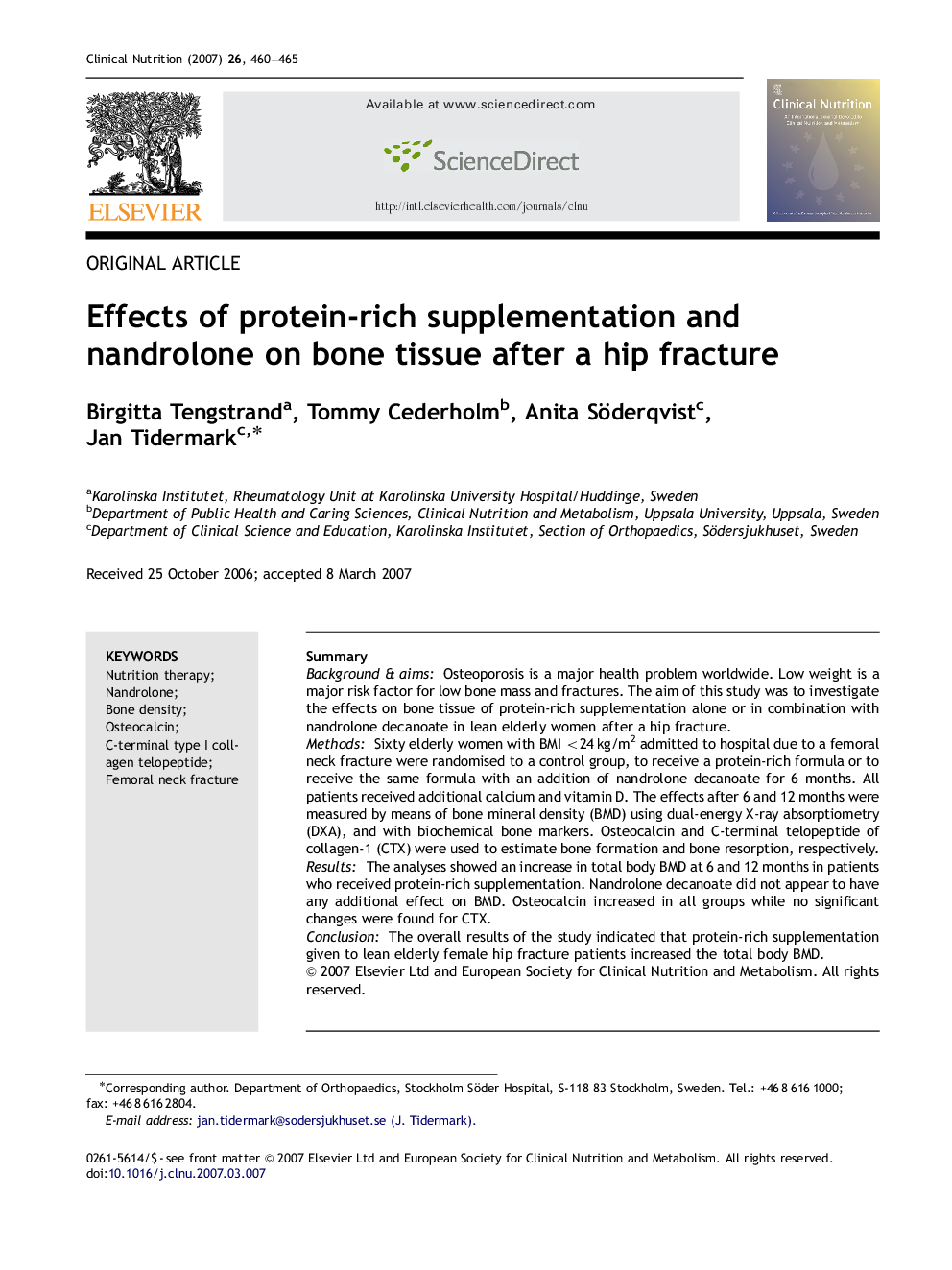| Article ID | Journal | Published Year | Pages | File Type |
|---|---|---|---|---|
| 2683372 | Clinical Nutrition | 2007 | 6 Pages |
SummaryBackground & aimsOsteoporosis is a major health problem worldwide. Low weight is a major risk factor for low bone mass and fractures. The aim of this study was to investigate the effects on bone tissue of protein-rich supplementation alone or in combination with nandrolone decanoate in lean elderly women after a hip fracture.MethodsSixty elderly women with BMI <24 kg/m2 admitted to hospital due to a femoral neck fracture were randomised to a control group, to receive a protein-rich formula or to receive the same formula with an addition of nandrolone decanoate for 6 months. All patients received additional calcium and vitamin D. The effects after 6 and 12 months were measured by means of bone mineral density (BMD) using dual-energy X-ray absorptiometry (DXA), and with biochemical bone markers. Osteocalcin and C-terminal telopeptide of collagen-1 (CTX) were used to estimate bone formation and bone resorption, respectively.ResultsThe analyses showed an increase in total body BMD at 6 and 12 months in patients who received protein-rich supplementation. Nandrolone decanoate did not appear to have any additional effect on BMD. Osteocalcin increased in all groups while no significant changes were found for CTX.ConclusionThe overall results of the study indicated that protein-rich supplementation given to lean elderly female hip fracture patients increased the total body BMD.
